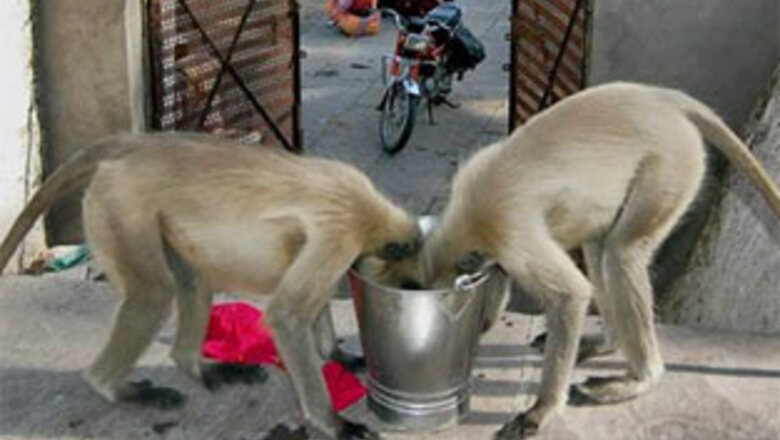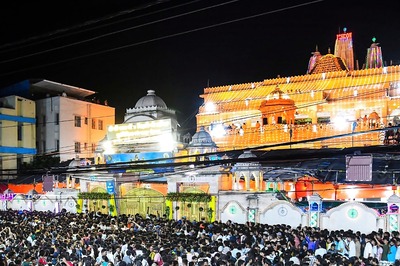
views
Shimla: The incarnation of god Hanuman for some, but crop destroyers and a big nuisance for farmers, monkeys are turning out to be a major election issue in Himachal Pradesh this time.
The issues are simple: Are monkeys friends or foes? Are they not an invasive pest species? Why has the state government not framed a long-term policy to control the menace so far?
"Every election brings a ray of hope (to get a policy to tackle the monkey menace), but there is a disappointment in the end," said Tula Ram Negi, a farmer in a village on the outskirts of the state capital Shimla.
"From dawn to dusk, children and women armed with sticks remain on vigil to protect their crops from these intruders who don't let go of any opportunity of causing immense damage," Negi said.
Another farmer, Naib Singh Thakur of Kandaghat in Solan district, said they were happy when the Bharatiya Janata Party (BJP) government came to power in the state because they thought it would deal with the issue.
"But it has also failed to take any effective measures to tackle this menace. Now, we (the villagers) have made up our mind to tell any visiting politician: Want votes? Start scientific culling of monkeys," he said.
TC Negi, another villager, echoed the same sentiments. "During the 2007 Assembly elections, we apprised politicians of the problems being faced by us due to swelling armies of monkeys, but to no avail. We should be compensated for our losses or we should be provided guns and cartridges to drive away the unwanted guests," he said.
Thousands of farmers in Shimla, Solan, Sirmaur, Bilaspur, Hamirpur, Una, Mandi and Kangra districts of the state have incurred losses due to the marauding monkeys.
As per forest department estimates, more than 9,00,000 farmers are badly affected by wild animals. Monkeys, numbering over 3,00,000, target mainly the cereal and fruit crops, causing great damage.
Kewal Singh of Sangrah in Sirmaur district said: "Earlier, we waged a war to convert the barren land into fields, and now we are fighting a different battle - a battle against monkeys."
"In our area, they are the single largest crop destroyers. If the government can't frame a policy to check their menace, the villagers will stop sowing fields," he said.
BJP leader and Himachal Forest Minister J.P. Nadda said the issue of monkey menace is a sensitive one.
"During the last (Assembly) elections we promised to the farmers that we would try to get rid of them scientifically. We are on the job... but we will not carry out mass killing of monkeys keeping in view the religious sentiments of the people.
"We are containing the monkey nuisance by mass sterilisation and setting up primate protection parks. We are allowing selective killing of monkeys by farmers whose crops are being damaged," Nadda said.
Congress state unit chief Kaul Singh Thakur said: "The government should frame a policy to reduce man-animal conflict. Our previous government did make efforts in that direction. We will try to get a policy at the national level as farmers in other states are also facing similar problems."
The previous Congress government had initiated mass translocation of monkeys to remote forest areas from towns and villages to control the menace. This process was, however, not successful as the territory vacated by the translocated animals was occupied by more aggressive troops of monkeys from surrounding areas.
However, Kuldeep Singh Tanwar of the Kheti Bachao Sangharsh Samiti, an NGO working for the cause of farmers, is not convinced about the reasons given by politicians.
"The export of wild animals, especially monkeys, for bio-medical research can be a good option to reduce their number," he said.
The central government had banned the export of wild animals in 1978.


















Comments
0 comment